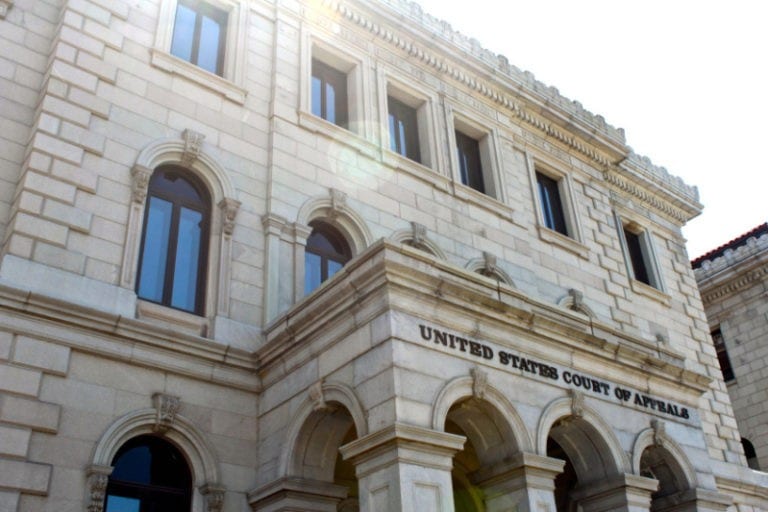
Judicial Watch and Allied Educational Foundation File Amici Curiae in Support of North Carolina Election Integrity Law in Fourth Circuit Court of Appeals

‘[T]he District Court carefully examined the pertinent questions … in its determination that the changes to North Carolina’s voting laws … do not cause racial minorities to be deprived of the opportunity to participate equally in the political process.’
(Washington, DC) – Judicial Watch announced today it has joined with the Allied Educational Foundation (AEF) in filing an amici curiae brief with the United States Court of Appeals for the Fourth Circuit in the case NAACP v. McCrory (No. 16-1468). The brief argues in support of a lower court ruling that the 2013 North Carolina election-integrity law, which includes, among other provisions, a requirement that voters show a photo identification card before casting a ballot, is valid
The Judicial Watch/AEF brief was filed in support of North Carolina Governor Patrick L. McCrory, who is asking the court to sustain the decision of U.S. District Court Judge Thomas D. Schroeder, upholding the North Carolina voter law.
The case concerns North Carolina’s adoption of common-sense election integrity measures requiring voter ID, eliminating “same-day” voter registration, reducing the early voting period, and prohibiting voters from casting provisional ballots outside of their voting precincts. The Department of Justice and other groups represented by the NAACP and the League of Women Voters filed suit, alleging this law was racially discriminatory against black voters in violation of Section 2 of the federal Voting Rights Act (“VRA”).
In their amici brief, JW and AEF explained that the Department of Justice was wrong. First, Section 2 of the VRA only prohibits state laws that directly cause increased difficulty for voters to exercise their right to vote “because of” or “on account of” their race. The North Carolina law causes no such injury to minority voters. Furthermore, JW and AEF explained that state’s voting laws are not illegal under the VRA just because plaintiffs show a statistical “disparate impact” of the law on racial groups, but rather the law must actually deny people an equal opportunity to participate based upon their race. North Carolina’s requirement that voters show identification does not deny opportunities to vote based upon race. Finally, JW and AEF explained that the Department of Justice is wrongly trying to resuscitate Section 5 of the VRA, which imposed more stringent limits on states’ election laws but was struck down by the U.S. Supreme Court in 2013 in Shelby County v. Holder.
Judicial Watch and AEF cite statistical evidence indicating that not only has African-American voter registration and voting not declined since enactment of the North Carolina law; it has actually increased:
Elections since the enactment of SL 2013-381 [the North Carolina election integrity law] have provided real life proof that the challenged provisions of SL 2013-381 do not cause any discernible disadvantage to minority voters. Rather, both black and white voters adapt to the new rules and continue to turn out to vote at rates higher than under the former voting rules changed by SL 2013-381.
The Judicial Watch/AEF amici brief concluded:
In its well-reasoned opinion, the District Court carefully examined the pertinent questions regarding trade-offs, alternatives, and mitigating factors – as is necessary under a totality of circumstances analysis – in its determination that the changes to North Carolina’s voting laws imposed by SL 2013-381 do not cause racial minorities to be deprived of the opportunity to participate equally in the political process. There is, accordingly, no sound basis for disturbing the District Court’s opinion.
“It is shameful how the Obama Justice Department and its leftist allies are pursuing a dishonest legal effort to undermine clean elections in the United States,” stated Judicial Watch president Tom Fitton. “Whether it be voter ID or other sensible measures, America needs more election integrity reforms like those in North Carolina.
Judicial Watch also joined with AEF in filing an amici curiae brief in June 2014 in support of the North Carolina law United States of America v. State of North Carolina et al. (No.1:13-cv-00861) in the United States District Court for the Middle District of North Carolina arguing that, contrary to dire predictions by the Obama Justice Department, minority voter turnout actually has increased since the passage of North Carolina’s election integrity statute (SL 2013-381). The amici brief opposed the attempt by the Department of Justice to get a preliminary injunction against key portions of SL 2013-381.
The Allied Educational Foundation is a charitable and educational foundation dedicated to improving quality of life through education. In furtherance of that goal, the Foundation has engaged in a number of projects, which include, but are not limited to, educational and health conferences domestically and abroad. AEF has frequently partnered with Judicial Watch to fight government and judicial corruption, and to promote a return to ethics and morality in the nation’s public life.
###















